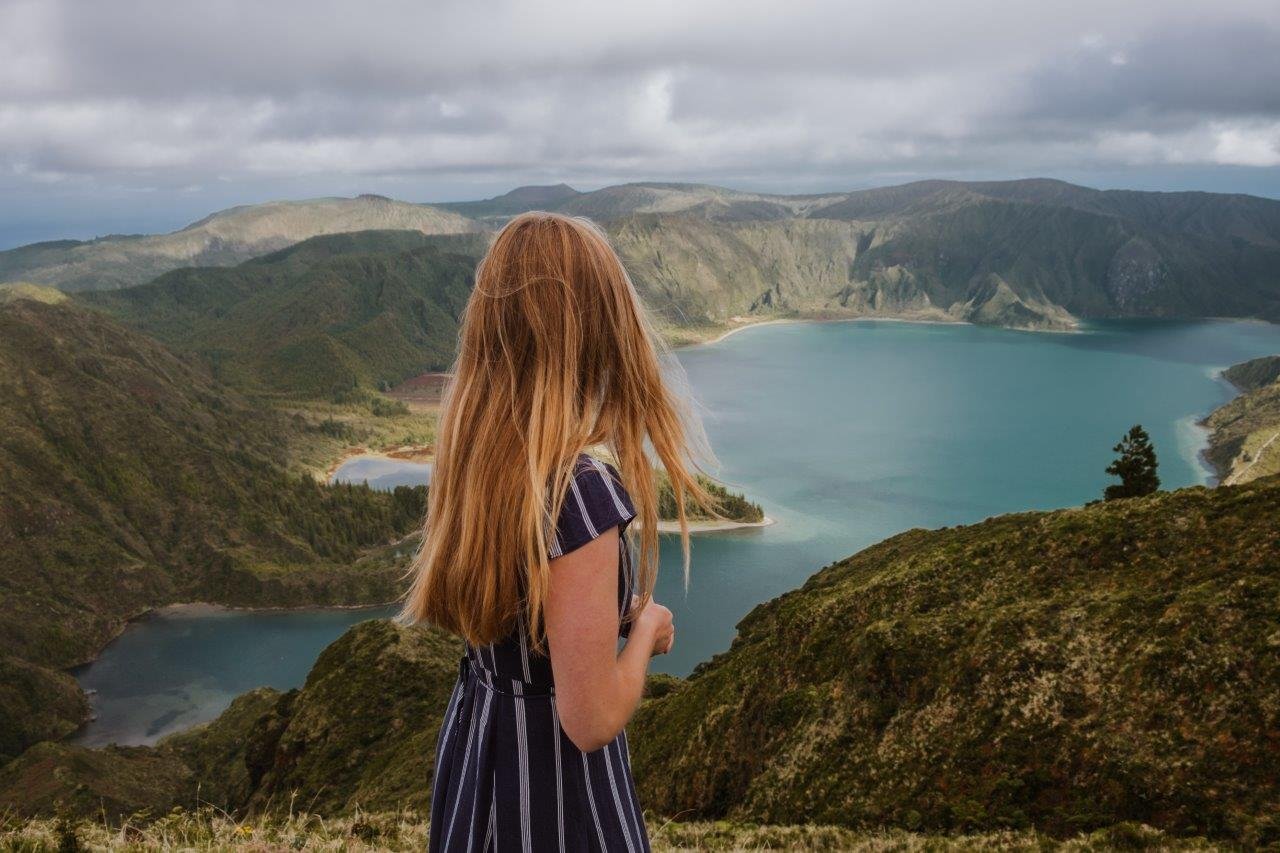
After spending a month working remotely from Porto, I took a week off work to travel through the stunning islands of Portugal. I started off with four days in the Azores, the northern archipelago, about a 2.5 hour flight from Lisbon.
There are nine islands in the Azores, the largest and most populous one being São Miguel Island, home to the Azores' biggest city of Ponta Delgada. The city was the perfect base as I explored the island. I checked into The Nook Hostel for my stay here and, aside from it being purely wonderful to be back in a hostel again after far too long, this one is exceptionally nice - clean, welcoming AND with free breakfast!
The public bus system here is few and far between (there isn't even one from the airport, you have to book an airport shuttle instead), so while renting a car was not an option, since I don't drive, I booked two full-day tours to take me around the island to the best spots.
I booked two tours with Pure Azores - one day in the west and one day in the east. The west tour was definitely my favourite of the two in terms of what we saw, but overall, we managed to pack so much into each day, seeing some of the most breathtaking spots on the island and pulling over to nearly ever viewpoint possible. This island is truly something else, with incredible mountain ranges and glistening blue lakes.
Whether you've got your own set of wheels or join a tour as well, here is my complete list for everything you should see while on São Miguel Island. And I managed to do all this in just three days - so if you've got more time, there's plenty of hiking to do and places you can go and spend much more time at.
Day 1: São Miguel West Tour
Miradouro do Pico do Carvão
We drove out of Ponta Delgada after I was the last to be picked up just near my hostel. The day was sunny with a few fluffy cotton candy clouds - the ideal weather for photo-taking and, apparently, some of the best weather we could have possibly hoped for for this tour. Our first stop was at the Miradouro do Pico do Carvão, a great first view looking out over the island. Fun fact: tens of thousands of years ago, São Miguel Island was actually two smaller islands and recent (as in, 50,000 years ago) volcanic activity connected the two mountainous lumps with a flat stretch between the two. You can see this really well from this first viewpoint.

Miradouro da Lagoa do Canário
We then headed further inland, towards the cluster of four lakes on the westernmost side of the island. Here, viewpoints aplenty awaited us. We parked at the parking lot marked on Google Maps just before the Lagoa do Canário. The lake is the first stop along the trail up to the famous view at the Miradouro da Boca do Inferno and is a source of fresh drinking water for the whole island.

Miradouro da Boca do Inferno
Continuing along the trail, the stunning "mouth of hell" opens up in front of you. It's actually the Lagoa Azul that you can see which is a bright blue, and then neighbouring Lagoa Verde (a greener shade, hence the name) as well as Lagoa Rasa and Lagoa de Santiago that you can see from this popular viewpoint. The four lakes were created from volcanic activity that occurred inside the Caldeira do Alferes, hence the rim ridge that surrounds all the lakes.
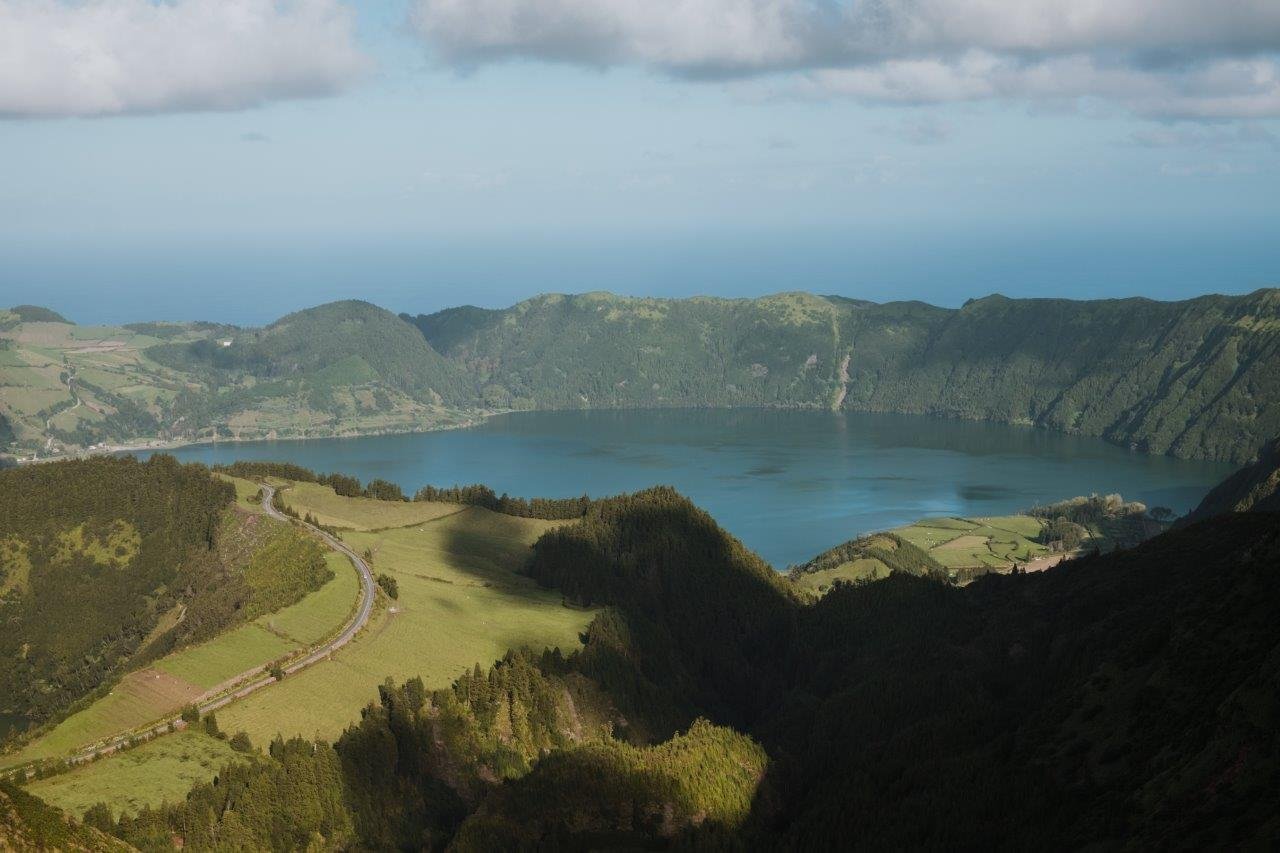
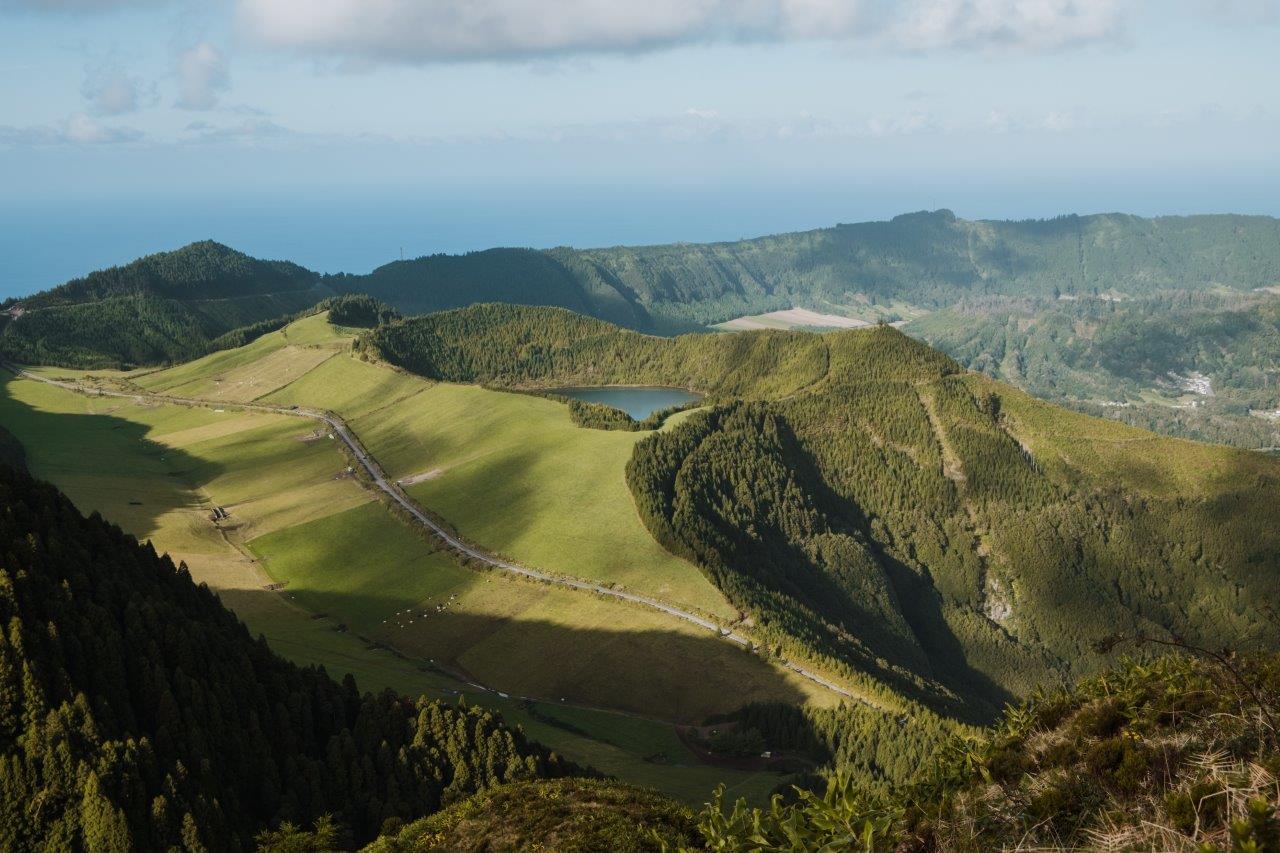
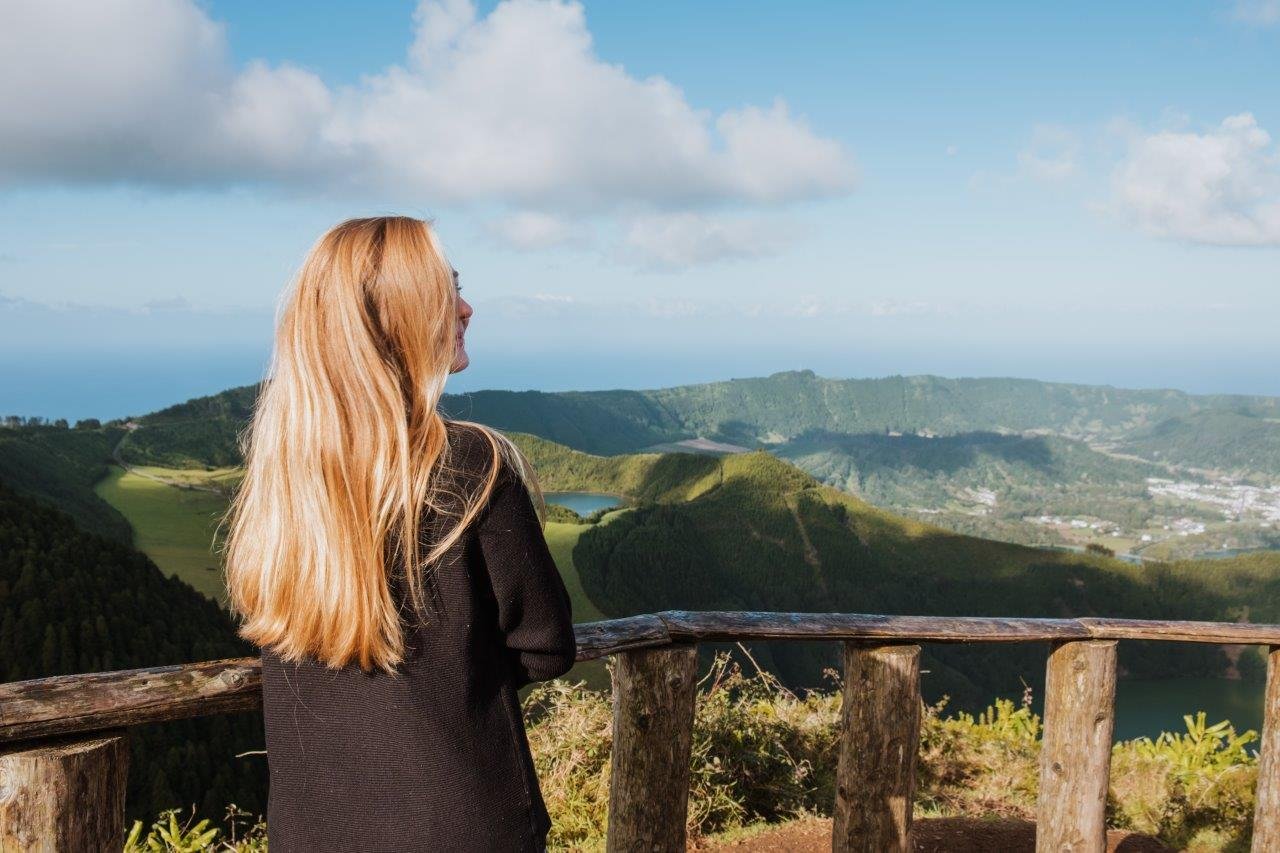
Miradouro da Vista do Rei
The official viewpoint was once declared by a Portuguese king in the early 1900s to be the most beautiful view he'd ever seen, hence its popularity. However, we actually stopped on the side of the road just before the official viewpoint which is much better and has no tree obstruction! You can see the Lagoa Verde and Lagoa Azul from the left side of where you had seen it before at the Miradouro da Boca do Inferno.
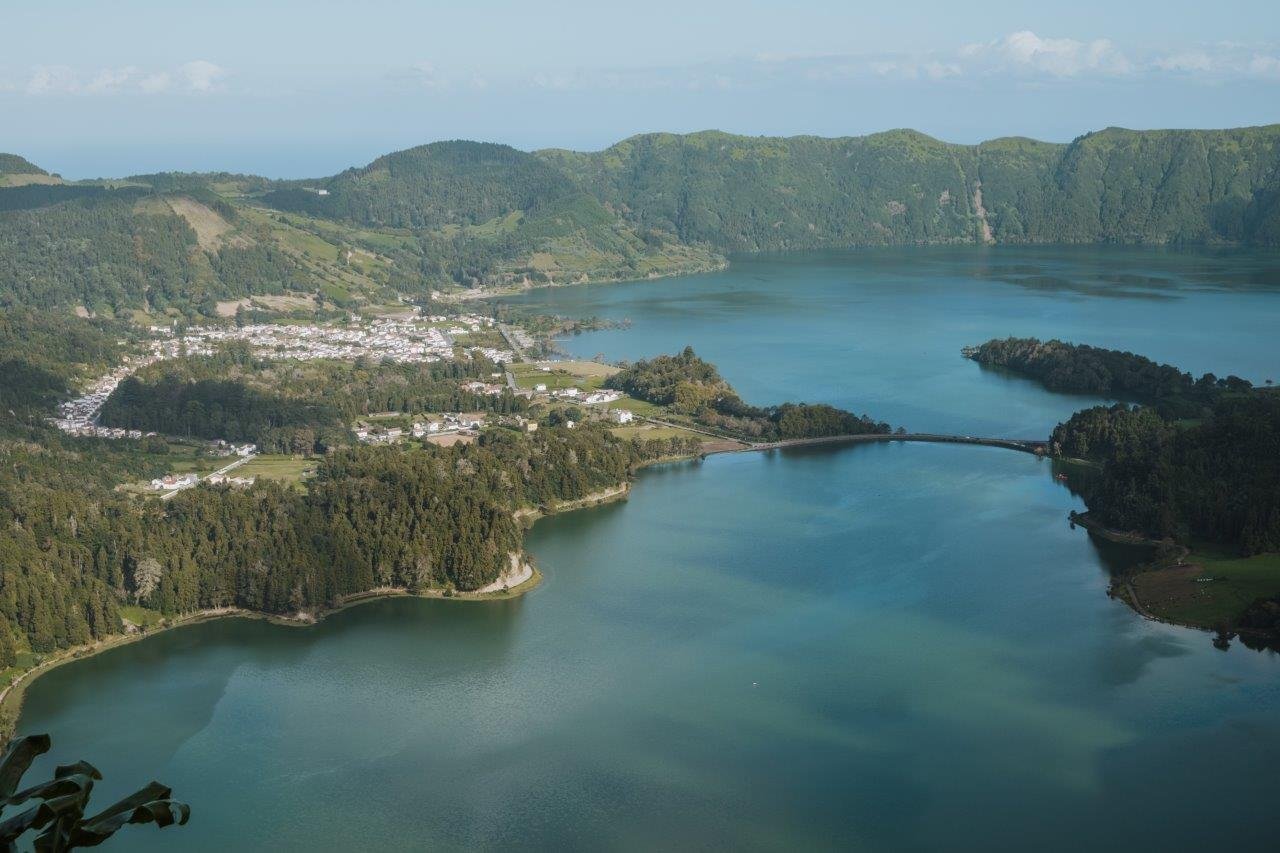
Miradouro do Cerrado das Freiras
We then drove down into the caldeira passing between the lakes, where we stopped at a viewpoint with another angle of the two lakes - Verde and Azul. This one showed really nicely the two colours of the lakes. Legend goes that a princess once fell in love with a poor shepherd. When they were discovered by the king and told they could never see each other again, they both cried so much they filled the lakes. The princess had blue eyes, hence Lagoa Azul, and the shepherd had green eyes, hence Lagoa Verde. A sweet story, regardless of how far from the truth!

Miradouro da Ponta do Escalvado
After a traditional Azorean lunch in Sete Cidades, we left the lakes behind and headed out to the western coast to take in the views out into the expansive Atlantic Ocean and to spot the visual history of erosion and volcanic activity left behind in the coastal rocks. The town of Mosteiros can be seen in the background.

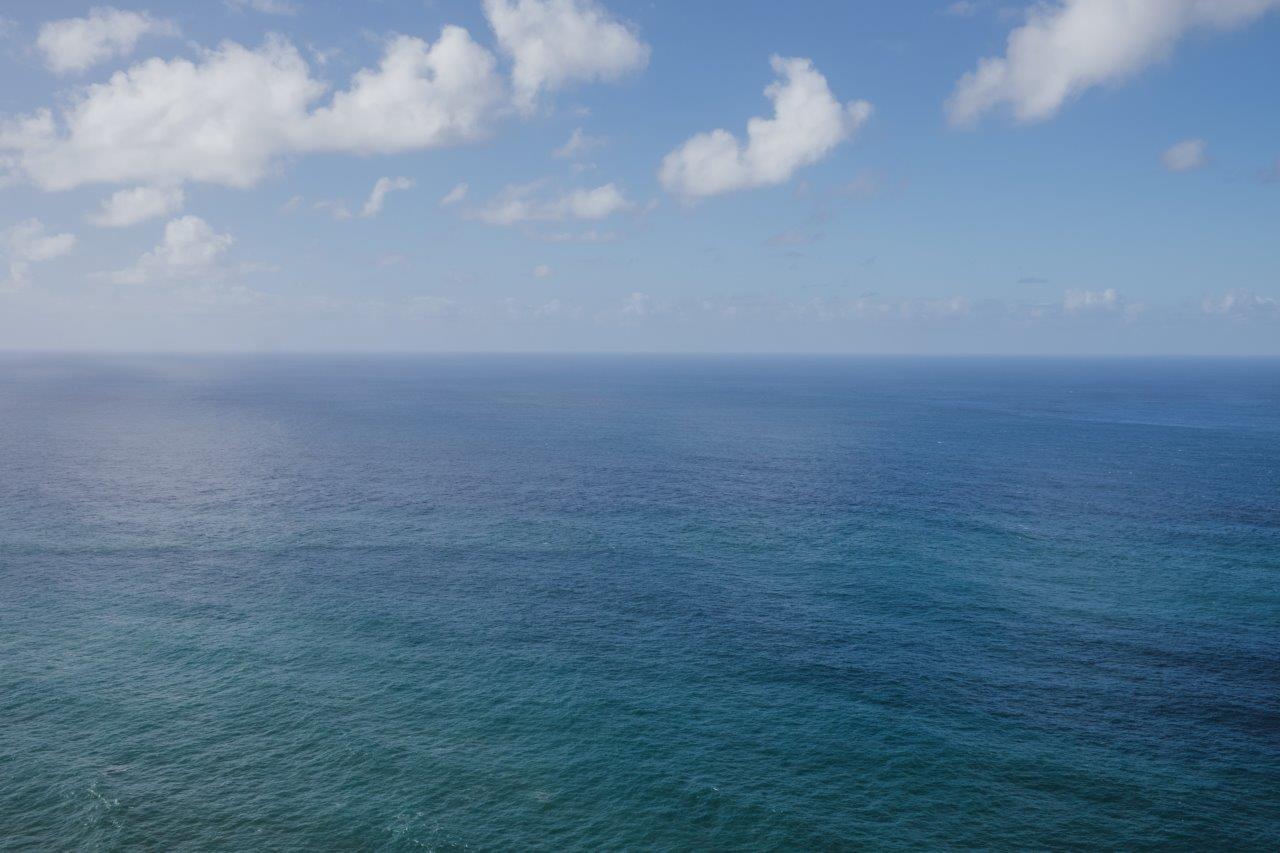

Miradouro do Pico da Barrosa
We then made our way into the centre of the island to visit Lagoa do Fogo that, 70% of the time, is covered in low-lying clouds and not often visible. There are a few viewpoints at varying heights to try and get views from - somehow we lucked out with perfect clarity, with the clouds high in the sky enabling a wonderful panoramic view.


Monumento Natural da Caldeira Velha
Probably my favourite stop on the first day was at this stunning natural hot springs that run out of a waterfall. Although it smells strongly of Sulphur, putting your feet (or fully swimming) in the hot bright blue water is a lovely experience.
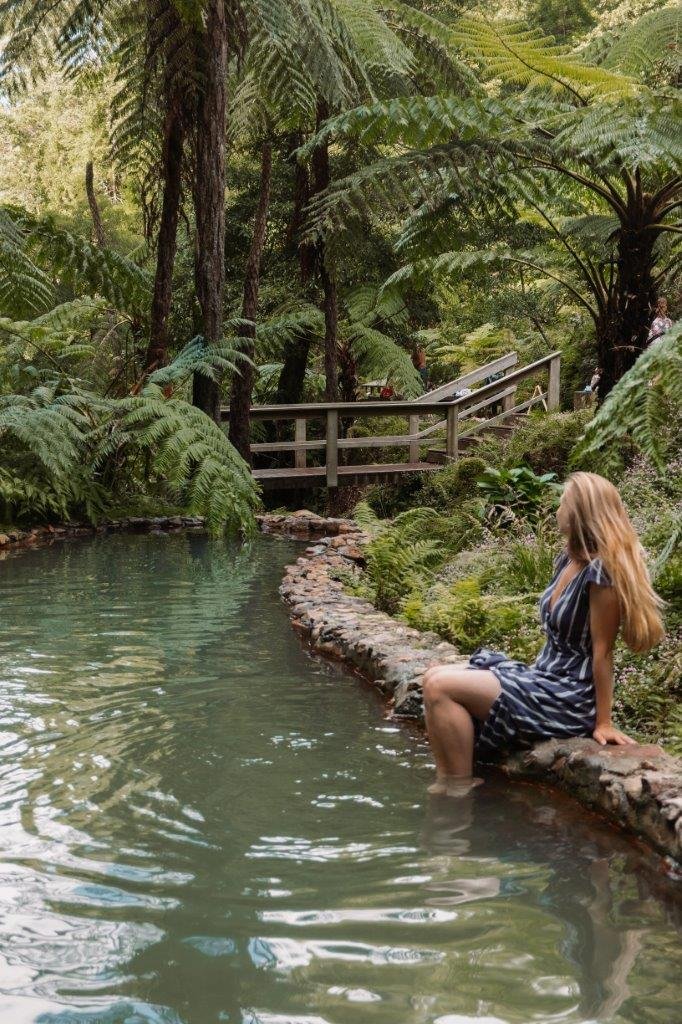
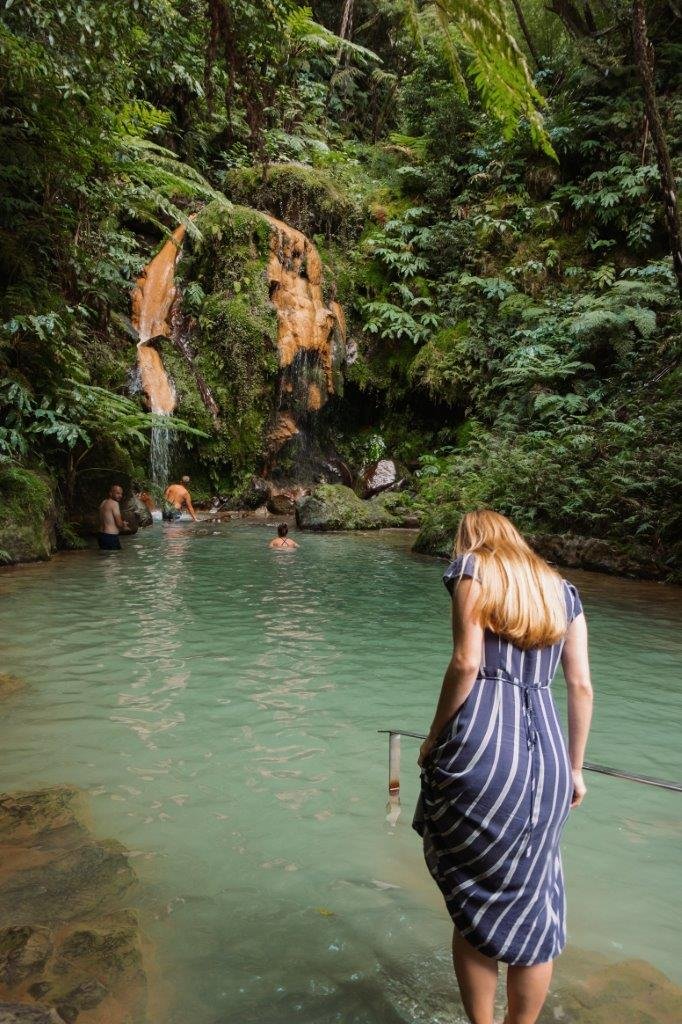
Miradouro do Cintrão
We finished our tour on the northern side of the island near the city of Ribeira Grande where we took in the views of the ocean crashing against the basalt rocks.

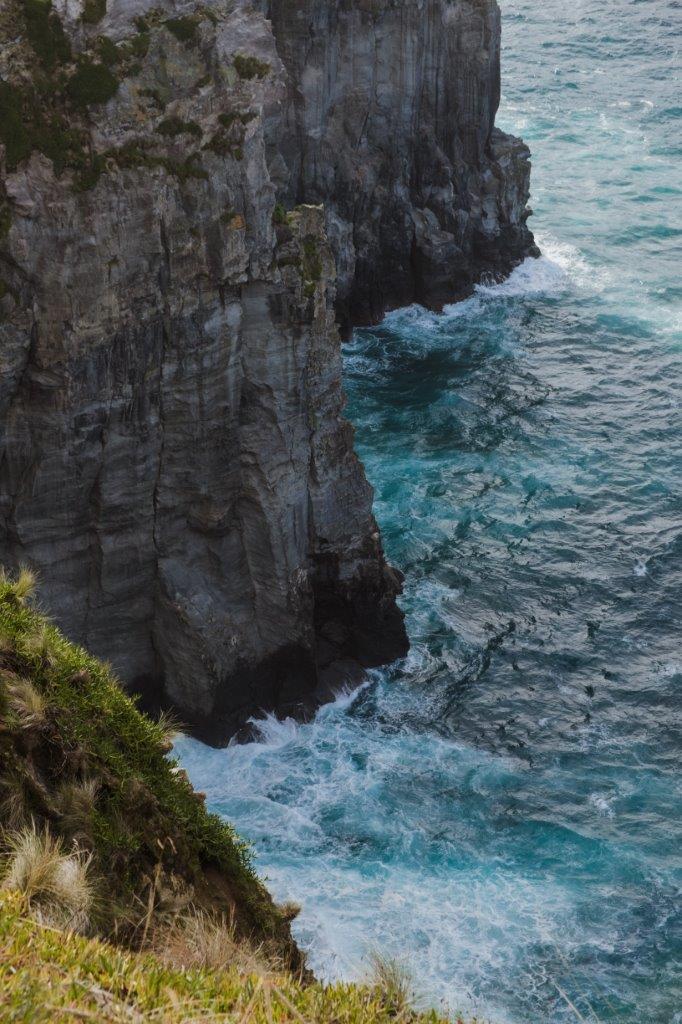
Day 2: Hiking & Botanical Gardens
Serra Devassa Hike
The hike at Serra Devassa is a popular loop trail that passes by six different lakes, offering sweeping panoramic views of the lush greenery, as well as pretty forest trails that, thanks to the peat moss that absorbs water, is damp and vibrant even after days of no rain!

Jardim António Borges
After our morning up in the mountains, we spent the afternoon wandering through the botanical garden in the heart of Ponta Delgada. Full of basalt rock formations and stairs and caves to explore, this is a totally unexpected find in the middle of the city! Although it was closed when we tried to visit, the other botanical garden - the Jardim Botânico José do Canto - is supposed to be quite wonderful, too.


Day 3: São Miguel East Tour
Praia de Água D'Alto
My final full day on São Miguel was spent on the east tour - the partner tour of the west tour I did on my first day which, according to their website, means you essentially get to cover the whole island in just two days. For those of us traveling here with limited time, it's the perfect option! We started out our morning visiting the dark sandy basalt beach east of Ponta Delgada.

Miradouro da Nossa Senhora da Paz
Leaving the coast behind, we headed inland towards our first viewpoint of the day. The staircase of Ermida de Nossa Senhora da Paz (which reminded me of a baby version of the Bom Jesus do Monte in Braga!) greeted us, and at the top the sweeping views of Vila Franca do Campo and the islet just off the coast welcomed us.
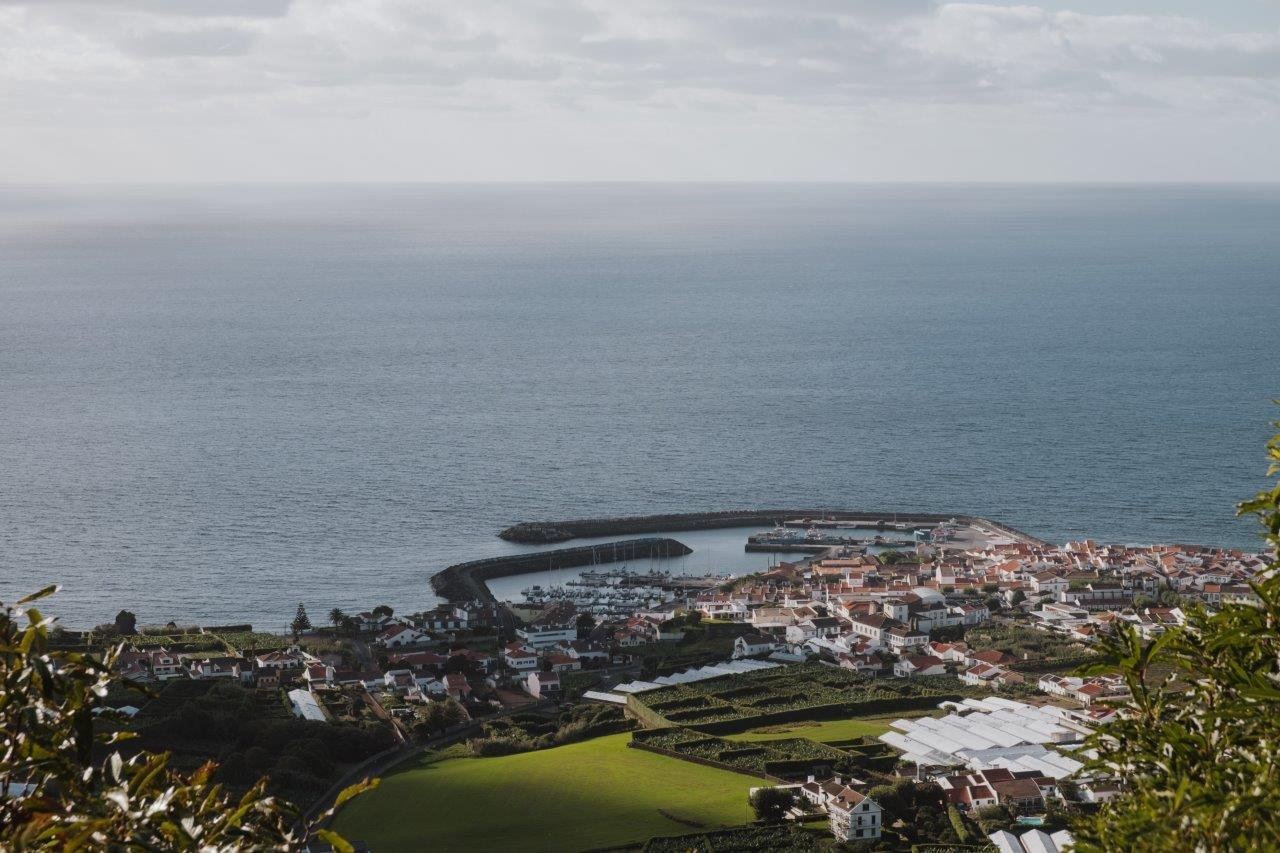


Lagoa das Furnas
Driving inland towards Furnas, we stopped at the lake where geothermal activity and Sulphur means boiling water and steam rises naturally from the ground here (similar to Yellowstone in the US and Rotorua in New Zealand). A neat experience of the tour here (for meat eaters) is watching your lunch be cooked inside the hot ground!
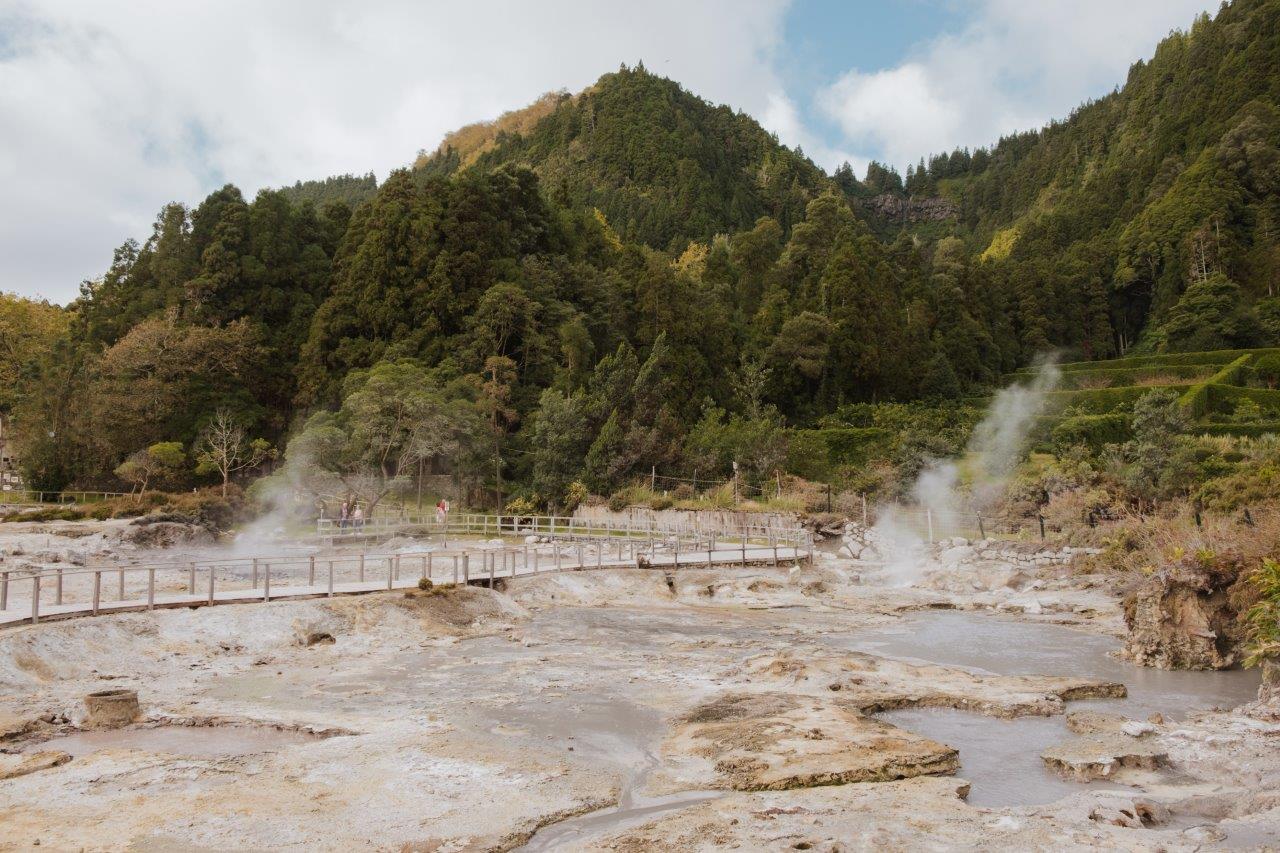

Parque Terra Nostra
The largest botanical gardens on São Miguel Island are in Furnas, where, for €8, you can wander the beautiful grounds and, for an extra fee, you can also take a dip in the vheated hot pools.

Miradouro do Pico do Ferro
This view point looks back down over Lagoa das Furnas and the geothermal landscape where your lunch was cooked!


View of Furnas

Miradouro da Vigia das Baleias
Now on the north coast of the island, this viewpoint gives panoramic ocean views as well as a great lookout back towards the island over the town of Algarvia and, on a clear day, views of the tallest peak on the island, Pico de Vera.

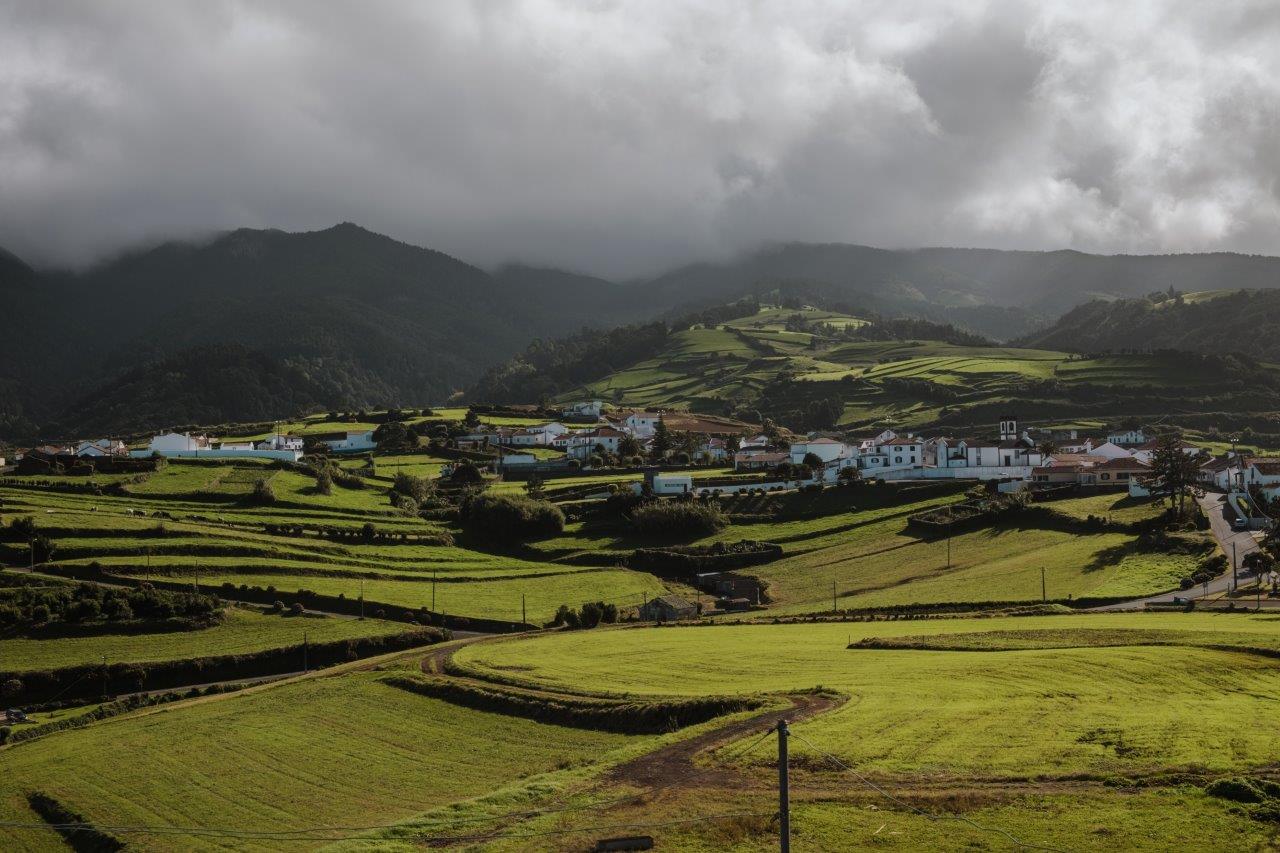
Cascata da Ribeira dos Caldeirões
One of my favourite stops on the whole tour was this exquisite waterfall which tumbles down into a beautifully maintained garden bursting with the colours of hydrangeas. Historically used to power the local flour mills, now it's a protected area just waiting to be explored.


Miradouro de Santa Iria
Our final stop of the last day before heading back into town was one last viewpoint on the north coast, about in the middle of the island. Here you can get 180 degree views, with towns dotting the coastline.


CHECK OUT MY VLOG OF THE AZORES HERE!
PIN THIS POST TO REFER BACK TO LATER!
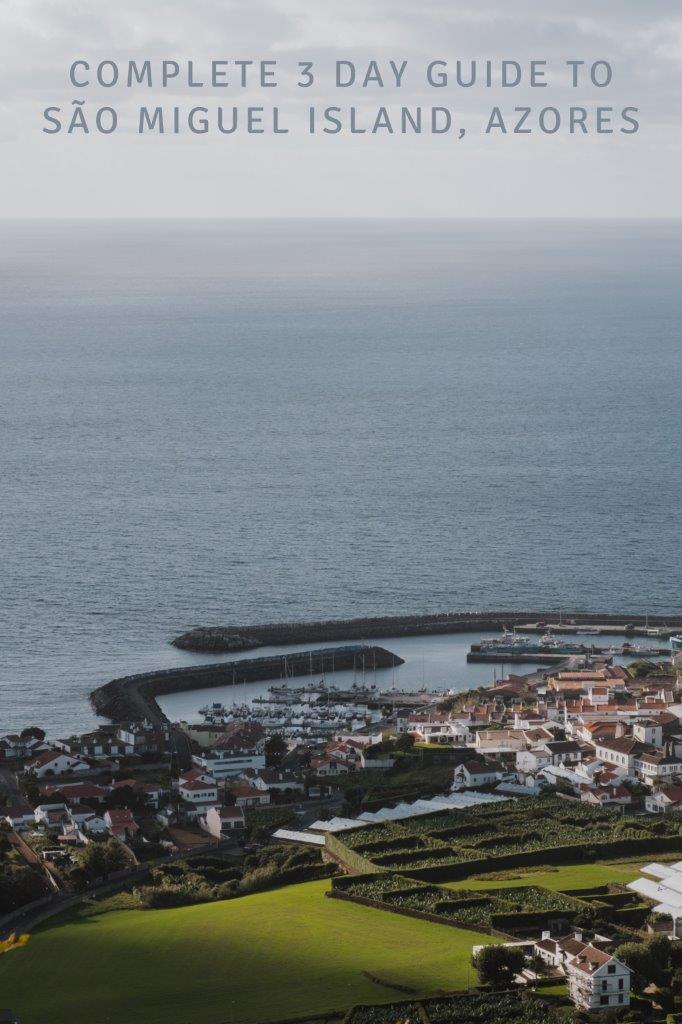

Hi! I’m Jana, a Dutch-German-British-Canadian with a dream of seeing every country in the world. I am a storyteller, photographer and adventurer passionate about documenting and sharing my travels.

a great read! very informative. thank you 🙂
we are planning a trip there and was wondering if the hiking trails you did was an open reservation or does it cost money to get in?
Author
Hello! Thanks for stopping by, I’m glad you found it useful 🙂 It’s SUCH a beautiful trip. I don’t remember having to pay to access any of the hikes mentioned above 🙂 You can just drive around and stop where you please! Enjoy 🙂
Hi Jana, thanks for this amazing summary. We would like to explore the west and the east by car. Do you remember how much time each roundtrip took you? Thanks
Author
Hey! Thank you for reading 🙂 It was an awesome trip. I did a full day on each side!